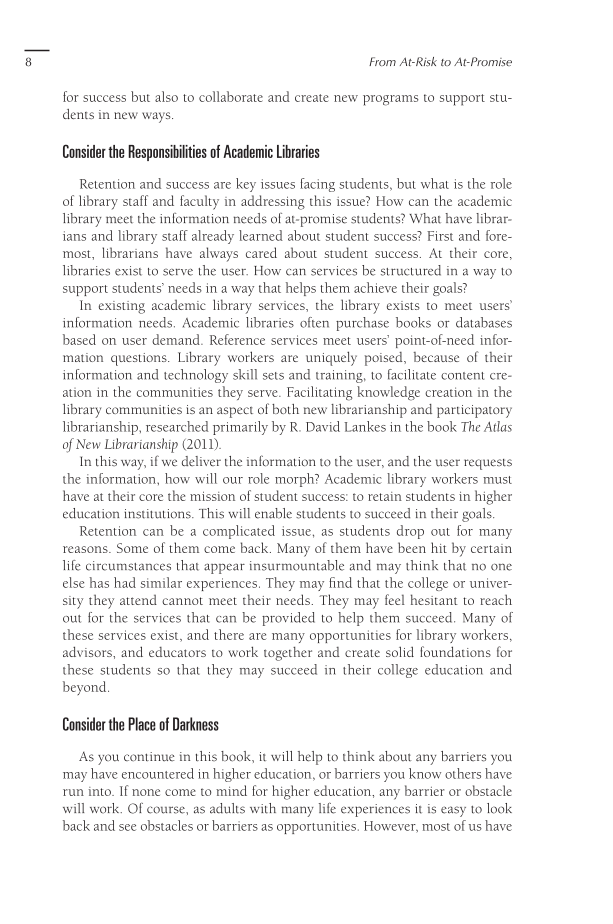8 From At-Risk to At-Promise for success but also to collaborate and create new programs to support stu- dents in new ways. Consider the Responsibilities of Academic Libraries Retention and success are key issues facing students, but what is the role of library staff and faculty in addressing this issue? How can the academic library meet the information needs of at-promise students? What have librar- ians and library staff already learned about student success? First and fore- most, librarians have always cared about student success. At their core, libraries exist to serve the user. How can services be structured in a way to support students’ needs in a way that helps them achieve their goals? In existing academic library services, the library exists to meet users’ information needs. Academic libraries often purchase books or databases based on user demand. Reference services meet users’ point-of-need infor- mation questions. Library workers are uniquely poised, because of their information and technology skill sets and training, to facilitate content cre- ation in the communities they serve. Facilitating knowledge creation in the library communities is an aspect of both new librarianship and participatory librarianship, researched primarily by R. David Lankes in the book The Atlas of New Librarianship (2011). In this way, if we deliver the information to the user, and the user requests the information, how will our role morph? Academic library workers must have at their core the mission of student success: to retain students in higher education institutions. This will enable students to succeed in their goals. Retention can be a complicated issue, as students drop out for many reasons. Some of them come back. Many of them have been hit by certain life circumstances that appear insurmountable and may think that no one else has had similar experiences. They may find that the college or univer- sity they attend cannot meet their needs. They may feel hesitant to reach out for the services that can be provided to help them succeed. Many of these services exist, and there are many opportunities for library workers, advisors, and educators to work together and create solid foundations for these students so that they may succeed in their college education and beyond. Consider the Place of Darkness As you continue in this book, it will help to think about any barriers you may have encountered in higher education, or barriers you know others have run into. If none come to mind for higher education, any barrier or obstacle will work. Of course, as adults with many life experiences it is easy to look back and see obstacles or barriers as opportunities. However, most of us have
Document Details My Account Print multiple pages
Print
You have printed 0 times in the last 24 hours.
Your print count will reset on at .
You may print 0 more time(s) before then.
You may print a maximum of 0 pages at a time.


























































































































































